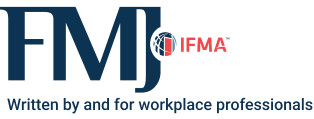On Standards
Supporting Standards: Meshing ISOs & UN SDGs
The International Organization for Standardization (ISO) is an independent, non-governmental body providing a platform for experts to share knowledge and develop consensus-based standards.
Joe Chappel, Grammy-nominated American singer made this observation:
There is something to be said for classical training, whether it’s music, dance, painting, sculpture… whatever. Classical training has a heavy emphasis on technique, and as a young artist it always feels so restrictive – all that repetitive fussing over the minutiae of making your body do that certain thing just so. But the secret is that good technique, once it’s engrained, is true freedom. Now you get to be the master of your body, as opposed to being a slave to its untrained limitations.
One might consider standards from the same perspective – a tool that enables an organization to develop a muscle memory, which then establishes maturity and results in true mastery to achieve objectives. If the objective is environmental stewardship, there are many ISO standards to support facility managers and the organization in their sustainability journey.
The perspective here considers ISO standards and the built environment within framework of the United Nation’s Sustainable Development Goals.

Some notable standards for FMs to consider when supporting their organization’s Corporate Sustainable goals; Environmental, Social, Governance (ESG) goals, or other sustainability initiatives are:
ISO 14001 Environmental management systems – Requirements with guidance for use
This standard specifies the requirements for an environmental management system that an organization can use to enhance its environmental performance.
Consistent with the organization's environmental policy, the intended outcomes of an environmental management system include:
-
enhancement of environmental performance;
-
fulfilment of compliance obligations;
-
achievement of environmental objectives.
ISO 26000 Guidance on social responsibility
This International Standard is intended to assist organizations in contributing to sustainable development. It is intended to encourage them to go beyond legal compliance, recognizing that compliance with law is a fundamental duty of any organization and an essential part of their social responsibility. It is intended to promote common understanding in social responsibility and complement other instruments and initiatives for social responsibility, not to replace them.
ISO 50001 Energy management systems – Requirements with guidance for use
This document specifies requirements for establishing, implementing, maintaining and improving an energy management system (EnMS). The intended outcome is to enable an organization to follow a systematic approach in achieving continual improvement of energy performance and the EnMS.
ISO 41001 Facility management – Management systems – Requirements with guidance for use
This document promotes the adoption of a process approach when developing, implementing and improving the effectiveness of a management system standard to enhance customer satisfaction by meeting their requirements.
This document specifies the requirements for a facility management system when an organization:
-
needs to demonstrate effective and efficient delivery of FM that supports the objectives of the demand organization;
-
aims to consistently meet the needs of interested parties and applicable requirements;
-
aims to be sustainable in a globally competitive environment.
Standards support sustainable goals by directly addressing the challenges organizations face when considering sustainability goals. They provide requirements, guidance or a framework for all stakeholders to follow and use to develop “good technique” that can eventually lead to freedom.

Laverne Deckert is an Independent consultant, working with organizations to creatively respond to their challenges. She has led research, educational programs, standards, and community development initiatives in the corporate real estate and FM industry. Her primary goal is to bring value to every interaction. Her colleagues value her curiosity and creativity, ability to organize complex information, to facilitate teams in meaningful collaboration, and her focus on strategic goals. Deckert currently as Administrator for the U.S. Technical Advisory Group Administer on behalf of the American National Standards Institute (ANSI) for ISO/TC 267 and as the convenor for ISO/TC 267/AG 1 – Roadmap Advisory Group.
Read more on Standards and Sustainability
Explore All FMJ Topics





